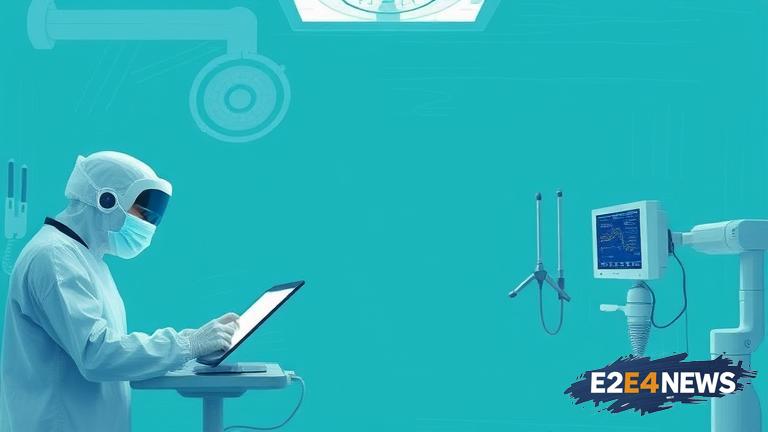The healthcare industry is on the cusp of a revolution, driven by cutting-edge medical technology that is transforming the way healthcare is delivered. Recent breakthroughs in fields such as artificial intelligence, robotics, and data analytics are enabling healthcare professionals to provide more accurate diagnoses, develop personalized treatment plans, and improve patient outcomes. One of the most significant advancements is the development of AI-powered diagnostic tools, which can analyze medical images and identify potential health issues more quickly and accurately than human clinicians. Additionally, robotic-assisted surgery is becoming increasingly common, allowing for minimally invasive procedures and faster recovery times. The use of data analytics is also playing a critical role in healthcare, enabling researchers to identify patterns and trends in patient data and develop more effective treatment strategies. Furthermore, the integration of wearable devices and mobile health apps is empowering patients to take a more active role in their healthcare, tracking their vital signs and monitoring their health in real-time. The FDA has also been working to accelerate the development and approval of new medical technologies, recognizing the potential of these innovations to improve public health. As a result, there has been a surge in investment in medical technology startups, with venture capital firms pouring millions of dollars into companies developing innovative healthcare solutions. The impact of these advancements is being felt across the healthcare spectrum, from primary care to specialized medicine. For example, AI-powered chatbots are being used to help patients manage chronic conditions, while virtual reality is being used to treat mental health disorders. The use of 3D printing is also becoming more prevalent, enabling the creation of customized prosthetics and implants. Moreover, the development of personalized medicine is allowing healthcare professionals to tailor treatment plans to individual patients’ genetic profiles. The potential of medical technology to improve healthcare outcomes is vast, and as these innovations continue to evolve, we can expect to see significant improvements in patient care. However, there are also challenges associated with the adoption of new medical technologies, including concerns about data privacy and security. To address these concerns, healthcare organizations are investing in robust cybersecurity measures and developing strict protocols for data management. Despite these challenges, the future of medical technology looks bright, with many experts predicting that these innovations will revolutionize the healthcare industry in the years to come. As the healthcare landscape continues to evolve, it is likely that we will see even more exciting developments in medical technology, from the use of blockchain to secure medical records to the development of implantable devices that can monitor and treat medical conditions. The impact of these advancements will be felt not only in the healthcare industry but also in the broader economy, as medical technology becomes an increasingly important driver of innovation and growth. In conclusion, the breakthroughs in medical technology are transforming the healthcare industry, enabling healthcare professionals to provide more effective and personalized care to patients. As these innovations continue to evolve, we can expect to see significant improvements in patient outcomes and a major shift in the way healthcare is delivered.
